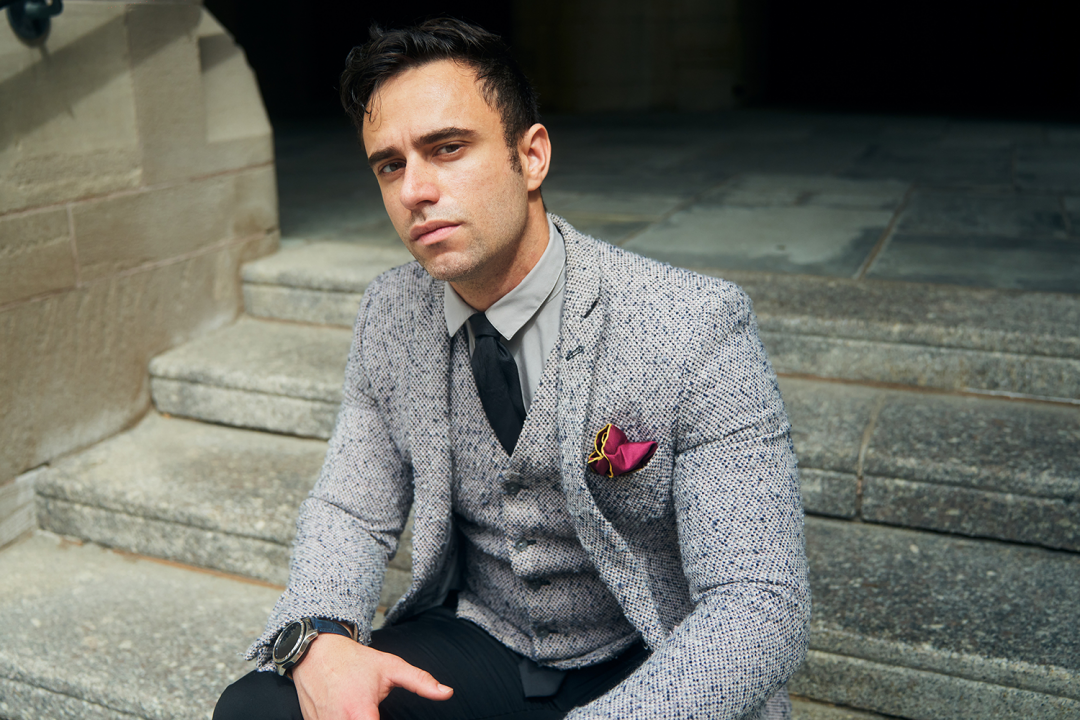Children across the United States are experiencing an unprecedented mental and behavioral health crisis. Data from the National Survey of Children’s Health indicates that approximately one in five children and adolescents have a mental, emotional, or behavioral disorder and roughly one-third of children and youth with a disorder do not receive relevant care.
At the same time, the behavioral health workforce itself is under immense strain. According to 2024 data from the Health Resources and Services Administration, more than 122 million people live in areas with shortages of mental health providers, and at least 6,200 additional practitioners are needed to meet current demand.
“High caseloads, long waitlists, and particularly acute shortages in children’s behavioral health and integrated care settings have left providers stretched thin, leading to burnout, stress, and exhaustion across the field,” explains Jon Phillips, assistant professor in the School of Social Work. “This gap leaves many children without timely or appropriate attention, worsening long-term outcomes for both individuals and communities.”
Now, with support of a four-year $2.4 million grant from the U.S. Department of Health and Human Services (HHS) Health Resources and Services Administration (HRSA), Phillips hopes to expand the pipeline of social workers specializing in youth behavioral health at a local level.
“Trained providers are especially needed in rural communities and communities with high percentages of older adults and high rates of poverty,” Phillips says. “This grant allows UConn to prepare the next generation of social workers with the skills and support necessary to provide high-quality, comprehensive, and culturally competent care to young people in Connecticut who need it most.”

As the grant’s principal investigator (PI), Phillips is launching the Behavioral Health Scholars Program (BHSP). Each year, 17 Master of Social Work students will be selected as Behavioral Health Scholars, receiving specialized coursework, intensive practicum placements, and faculty mentorship. The BHSP focuses on preparing students to work in integrated behavioral health care settings which take a “whole-person” approach by blending behavioral health care and primary care.
Over the life of the grant, 68 students will complete the program. Participants will receive a $25,000 stipend to reduce financial barriers to earning their degree.
The Scholars will complete practicums in partner agencies that provide integrated behavioral health care in underserved communities in Connecticut such as the Wheeler Clinic, the Village for Families and Children, Community Health Services, Community Mental Health Affiliates, and Community Health Center, Inc. Additionally, students will connect with mentors and receive interprofessional learning opportunities and job placement supports.
Faculty and practicum supervisors will receive specialized training to improve clinical supervision and mentoring, particularly for students from historically underrepresented backgrounds.
This initiative is one of the many programs that is operationally managed by co-PI Milagros Marrero-Johnson, senior director of SSW Strategic Initiatives and Community Engagement. “The UConn School of Social Work is well-positioned to implement the BHSP program at a crucial time when the behavioral health needs of the children and youth of our state are at an all-time high. Students who participate in this program will not only benefit from specialized training in integrated behavioral health care but will also be able to offset their educational costs while obtaining their MSW degree. This is a win-win situation for everyone.”
The BHSP program builds on UConn’s strong track record of placing more than half of its MSW students in medically underserved communities. The School of Social Work also offers a MSW Certificate for Child and Youth Behavioral Health, a DCF Child Welfare Workforce Training Program, and a bilingual Spanish/English clinical training through the Connecticut ¡Adelante! Scholars Program.
“Many of our students are already deeply committed to serving children and families,” says Laura Curran, dean of the School of Social Work. “By equipping them with advanced training in integrated behavioral health, the BHSP program strengthens both the workforce and the communities we serve.”
Phillips will be supported by Curran; Marrero-Johnson; co-PI and lead evaluator Meg Paceley, associate professor at the SSW; Michelle Zabel, director of UConn’s Innovations Institute; Millicent Malcolm, associate clinical professor in the Elisabeth DeLuca School of Nursing; and Petra Clark-Dufner, director of the Connecticut Area Health Education Center.
“UConn is fortunate to have so many nationally recognized experts in behavioral health care, primary care, and education and training initiatives,” Phillips says. “We have assembled an amazing team of educators, practitioners, academics, and researchers who bring a wealth of experience and hands-on knowledge. Perhaps most importantly, our collaborative team is passionate about supporting our students and addressing the needs of our community.”
This grant allows UConn to prepare the next generation of social workers with the skills and support necessary to provide high-quality, comprehensive, and culturally competent care to young people in Connecticut who need it most. — Jon Phillips, assistant professor in the School of Social Work
The grant compliments Phillips’s own research on the quality of interprofessional collaboration—collaboration between the professionals from disparate disciplines who are working with a single person or family. This interaction can affect the quality of services the person/family receives and ultimately their ability to achieve a positive outcome.
“Research clearly indicates that poor interprofessional collaboration is linked to poor service delivery and worse outcomes for clients in healthcare settings. Therefore, I am interested in identifying ways to enhance professionals’ capacities for interprofessional collaboration, particularly social workers given that they often interact with professionals from non-social work disciplines to address the multidimensional needs of their clients,” Phillips explains. “This HRSA grant allows me to do just that—to better prepare social workers for working with professionals from other health-related disciplines to ensure they are meeting their client’s needs.”
Beyond training new social workers focused on behavioral health, the scholars program aims to create a lasting impact by expanding UConn’s capacity to deliver cutting-edge education in integrated care. The program will offer new courses, strengthen interprofessional collaborations across health disciplines, and provide continuing education for alumni and community partners.
Ultimately, Phillips hopes the effort will lead to measurable improvements in behavioral health outcomes for Connecticut’s children and youth.
“By training social workers to provide integrated, evidence-based, and culturally responsive care, we can not only fill urgent workforce gaps but also reduce disparities and improve the lives of children and families across the state,” he says.
The first cohort of Behavioral Health Scholars will be selected during the current fall 2025 semester.



